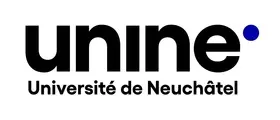The following article is archived and is no longer considered up-to-date. Please interpret its content in the context of the publishing date.

ARCHIVED
2016 Nobel Prize Winners Announced: Meet the Nobel Laureates
Read a summary using the INOMICS AI tool
The winners of the 2016 Nobel Prizes were recently announced, to honour outstanding contributions to the fields of economics, physics, chemistry, medicine, literature, and world peace. The winners have each made a dramatic impact on the state of their various fields, so in this article we'll introduce you to the winners and to the work which they have be recognised for.
The prize in economics this year went to both Oliver Hart, Professor of Economics at Harvard University, and Bengt Holmström, Professor of Economics at the Massachusetts Institute of Technology, for their contributions to contract theory. Hart, born in Britain, and Holmstrom, who is Finnish, were brought together by their related research projects and have been friends for decades. "He's my closest intellectual friend here and a personal friend also. And he has been important for my thinking and I hope I have been important for his thinking," Holmstrom told Reuters Television.
In his work since the late 1970s, Holmström examined the relationship between performance and compensation in the context of employment contracts. He found that in industries which are high-risk, payment in a fixed salary is preferable, while in stable industries, it is better for payment to be directly linked to performance. These findings have been used to criticise the high levels of executive pay in the USA and other countries, and to argue for policies to rectify stagnant wages for workers. The work is of direct practical relevance to companies and individuals who are interested in how fair compensation for labour should be assessed.
Hart’s research focused on incomplete contracts and the need to have an open approach to them while maintaining a firm grasp on the rules governing such situations. As contracts cannot specify every possible eventuality in their text, a theory was required to determine which party should have control rights over the contract; that is, which party is entitled to make decisions in which circumstances. Hart's approach focuses on the method of determining a specific outcome in a general situation, rather than the precise outcome, which has relevance for questions of which companies should merge, and whether institutions such as hospitals, schools, and prisons should be owned publicly or privately. For example, Hart has argued that in privatised prisons, the incentives to cut costs are too strong, resulting in worse conditions for prisoners. In fact, federal authorities in the USA are now ending the use of private prisons, because they have found that the conditions in them are worse than in publicly-run prisons.
Between Holmström and Hart, their research founded the field of contract theory as an area of economic study. By analysing optimal contractual arrangements, they have laid the basis for determining the best policies in areas as diverse as bankruptcy legislation and political constitutions.
The other Nobel Prizes awarded included the prize in physics, which was shared between David J. Thouless of the University of Washington, USA; and F. Duncan M. Haldane of Princeton University, USA and J. Michael Kosterlitz of Brown University, USA, all three of whom worked in the area of topological concepts. They used advanced mathematical models to examine unusual states of matter, such as superfluids, which has potential applications in the fields of materials science and electronics.
The Nobel Prize for chemistry went to a group of three, Jean-Pierre Sauvage of the University of Strasbourg, France, Sir J. Fraser Stoddart of Northwestern University, USA, and Bernard L. Feringa of the University of Groningen, the Netherlands. Between the three of them, from 1983 to 2016 they developed molecules which are capable of performing a task when energy is passed to them, also known as “molecular machines”. The potential applications of this research are enormous, including the creation of new types of materials and energy storage systems.
The award in medicine went to Yoshinori Ohsumi of the Tokyo Institute of Technology, Japan, who discovered the mechanisms through which autophagy operates. Autophagy is the process by which cellular components degrade and are eventually recycled, the exact mechanisms of which have not been understood before now. The knowledge of the recycling processes of cells has applications in the understanding and treatment of diseases like Parkinson's disease and type 2 diabetes.
The Nobel Peace Prize for 2016 went to Juan Manuel Santos, President of Colombia, for his efforts in ending the civil war which has raged in the country for more than 50 years. President Santos initiated negotiations between the government and the guerilla group FARC, which eventually lead to a peace accord between the parties. The award is also a tribute to the more than 220,000 Colombians whose lives were lost due to the war.
Finally, the Nobel Prize in literature went to to American singer-songwriter Bob Dylan, in a surprising choice which represents the first time that a musician has been awarded this prize. As he is famed for his lyrics as much as for his melodies, Dylan was honoured for his profound contributions to poetic expression in the American song tradition.
If you are interested in reading about last year’s winners, take a look at this blog post on the 2015 Nobel Prize recipients and their work
Photo Source: Adam Baker , Marie Thérèse Hébert & Jean Robert Thibault
-
- Postdoc Job
- Posted 1 week ago
Postdoctoral Research Fellow Opportunity
At University of Notre Dame in Notre Dame, Estados Unidos
-
- Professional Training Course, Supplementary Course, Online Course
- (Online)
- Posted 2 weeks ago
Maximising the Potential of Stata’s new Python Capabilities - Live Online Course
Starts 9 Apr at TStat Training
-
- Postdoc Job
- Posted 1 week ago
Postdoctoral Researcher (all genders welcome)
At Georg-August-Universität Göttingen in Alemania













